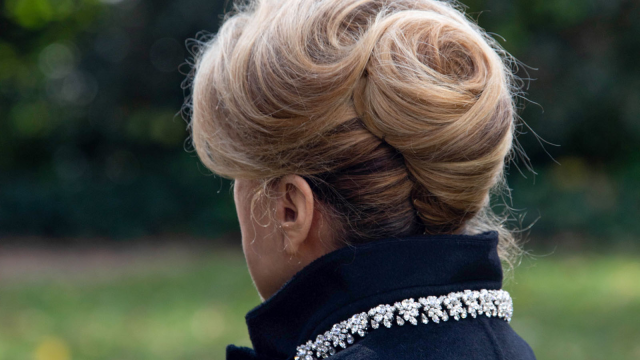AFI Fest 2019: The Truth, by Scott Nye

Hirokazu Koreeda, having achieved consistent success in his home country of Japan and taken the global stage by storm with last year’s Shoplifters, has broadened his view to the west, as many Asian directors of great renown tend to – not, in this case, all the way to America, but rather nestling in France, taking the opportunity along with that to work with two of its greatest national icons, and one American for good measure. The announcement alone that Koreeda was working on a project with Catherine Deneuve, Juliette Binoche, and Ethan Hawke was enough to set a very particular subset of the internet ablaze, fulfilling the kind of fan dream casting certain cinephiles do unconsciously. The particulars of the results could almost be besides the point; just to see these four trade off their rhythms would go a long way.
Go a long way it does; to deny the pleasure of long, drawn-out arguments, watching children at play, fleeting moments extended slightly beyond what the ordinary film would grant, soft piano music as the sun sets on a day and the cast settles into a little too much wine…to deny that would be to deny the fundamental draw of the cinema itself. But as with his Japanese films, Koreeda’s sense of this contentment is that it is necessarily, at any moment, about to end, that as we age, the moments of pure ephemera become more and more intertwined with the rest of life’s stresses.
Deneuve plays Fabienne Dangeville, famed star of the French screen, who has just published her memoir, and is in the midst of shooting a small role in a new film with a newly-successful young actress. On this particular week, her screenwriter daughter Lumir (Binoche), along with her actor husband Hank (Hawke) and their daughter Charlotte (Clémentine Grenier) have come for a visit. Ostensibly there to celebrate Fabienne’s publication, Lumir is hoping to confront her over some glaring inaccuracies, and along the way dig through the neglect she suffered as a child.
At the same time, Fabienne is shooting a small role in a new film, a science fiction drama about a woman who, after being diagnosed with a fatal disease and given two years to live, takes off to space in some kind of Interstellar hyper-orbit that suspends her in time, returning once every seven years to visit her daughter, who gradually grows older than she does. Fabienne plays the daughter towards the end of her life. I would like to see this movie very much.
As with Koreeda’s Japanese work, particularly his films before Shoplifters, The Truth is overwhelmingly concerned with familial issues of legacy, of lingering but not debilitating trauma, of seeking contentment despite whatever has happened in the past, recognizing that whatever time we have together is limited and precious. Yet he’s also adapting to a very French milieu; the memoir, the prison behind Fabienne’s lovely estate, the way desire for public recognition is tied together with private intimacy (Fabienne’s longtime manager is equally perturbed he’s omitted from the book, and that she had no idea he had more than one grandchild), and the way the film industry is a kind of royalty. Most importantly, it at to a certain emotional approach common in France, the U.K., and America, where great swells of emotion are dismissed with a joke by one party or another, all the better to avoid confrontation and retain a sense of power. During one particularly tense dinner scene, Fabienne reduces her daughter’s legitimate grievances with snide remarks about Hanks shortcomings and Lumir’s own career stalls.
Deneueve was apparently reluctant to take the role, stipulating among her conditions that it be shot in Paris, which she will not leave, and the film extrapolates from that a shut-in quality that imprisons Fabienne. The character constantly complains about the film she’s working on, often contradicting herself in doing so, and desires at all times to be doing anything else, or at least talking about her past successes rather than dwelling on her present status as a supporting actor to a much younger, more popular star. She blows takes, she shows up late, yet she still holds onto the notion that as long as she’s a great actress, her personal failures are immaterial. She talks about other actresses who have put more effort into charity or philanthropy, assailing them for abandoning their craft.
To say this is Deneuve’s best work in years may be an overstatement, as the bulk of her films see little if any release in America, but it has the mark of bravery both on her part and on Koreeda’s. The film gives little ground in reflexively worshipping her, instead using her considerable reputation as a weapon to emphasize Fabienne’s pettiness, and Deneuve doesn’t shy away from her character’s passive cruelty. Binoche, apparently the one who had long urged Koreeda to make a film with her in France (ever the actress of considerable taste), has a wonderful sense of Lumir’s directness, ever focused on the present issue in front of her while consistently egged on by her own desire for a greater reconciliation. At times, she’s completely dismissive of Fabienne’s needs, yet she’s always there to make sure she’s attending to them.
Koreeda is also working for the first time with one of France’s best cinematographers, Eric Gautier – himself a bit of a globetrotter, having recently shot films for Cameron Crowe and Jia Zhangke – whose work here is humble and quietly extraordinary. There’s a scene late in the film between Deneuve and Binoche that seems lit only by moonlight and a distant lamp, all the better to draw out some distant starlight of the tender feelings Fabienne and Lumir have for one another despite never really being able to regard themselves as a mother and a daughter. Soon, all will be callously dismissed and the routine will return, but for a moment, they are able to share something.





























